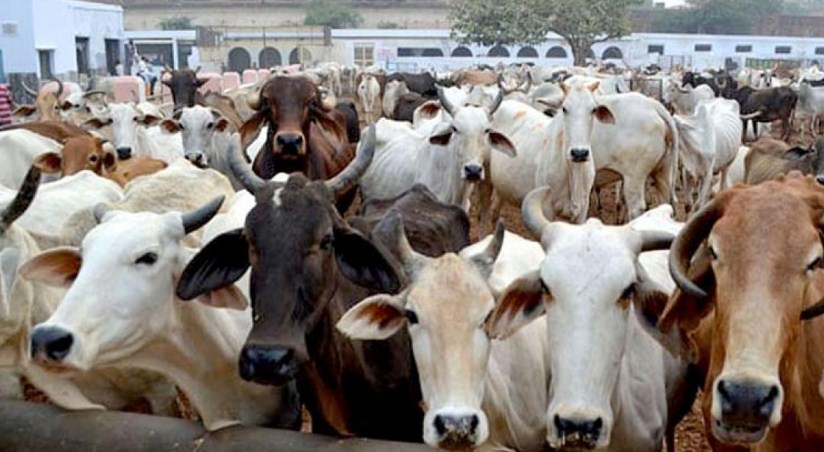Ah, you’ve ever wondered what gets under the hide of those gentle giants, haven’t you? Well, you’re about to find out. As it turns out, cows have their fair share of pet peeves, and it’s not just about being milked dry. From loud noises that make them jump out of their hooves to confined spaces that drive them mad, you’ll be surprised at what makes these lovable creatures go from moo to miserable. So, saddle up and let’s probe the world of bovine dislikes – you might just learn something that’ll make you a better cow whisperer!
Key Takeaways:
- Loud Noises: Cows are scared by loud noises, which can cause stress, anxiety, and even hearing loss if persistent.
- Confined Spaces: Cows dislike being confined in small spaces, leading to anxiety, irritability, and physical problems if not given enough space to roam.
- Unfamiliar Animals: Cows are stressed by unfamiliar animals, which can prevent them from making friends and cause significant anxiety.
- Bad Weather: Cows dislike extreme temperatures, high humidity, and bad weather conditions, which can lead to stress, reduced performance, and dehydration.
- Painful Procedures and Lack of Stimulus: Cows dislike pain and boredom, and it’s necessary to minimize discomfort during medical interventions and provide environmental enrichment to keep them occupied and stimulated.
Things That Scare Cows
The things that scare cows can be quite surprising, but understanding these fears is crucial to providing a comfortable and stress-free environment for these magnificent creatures.
Loud Noises
Cattle, it seems, have a sensitive ear for loud noises. You might not think that a loud truck driving by or a sudden thunderstorm would send them running, but it’s exactly these kinds of sounds that can send cows into a panic. And it’s not just a temporary fright – prolonged exposure to loud noises can lead to chronic stress, anxiety, and even hearing loss.
Unfamiliar Animals
Cattle, being creatures of habit, can get spooked by unfamiliar animals. You introduce a new face into their social circle, and suddenly they’re on high alert, unsure of what to make of this new addition. It’s not that they’re inherently unfriendly, it’s just that they prefer to stick with what they know and love.
Animals, as we know, have unique personalities, and cows are no exception. Some might take to new friends quickly, while others will need a little more time to warm up. But one thing’s for sure – a sudden change in their environment can cause significant distress. So, if you’re introducing new animals to the herd, do it slowly and with care to avoid any unnecessary stress.
Confined Spaces
Detesting cramped quarters, you’ll often find cows feeling anxious, irritable, or uncomfortable when confined in small spaces for extended periods. As social animals, they’re meant to roam freely, and being cooped up can lead to aggressive behavior and a range of physical problems.
Bad Weather
To say cows are weather wimps might be an exaggeration, but they certainly don’t appreciate extreme temperatures, high humidity, or thunderstorms. These conditions can cause stress, reduced performance, and even dehydration or heat stress.
The impact of bad weather on cows cannot be overstated. When temperatures drop below freezing, they need a warm, dry, and draft-free shelter to thrive. And let’s not forget the terror they experience during thunderstorms and lightning, which can lead to unpredictable behavior.
Painful Procedures
Painful medical interventions can be a source of distress for cows. You might not think about it, but a simple vaccination or hoof trimming can cause them discomfort and anxiety. It’s important to minimize their pain and provide a comfortable recovery environment to reduce stress.
Lack of Stimulus
Stimulus-deprived cows can become restless and agitated, negatively impacting the entire herd’s productivity and welfare. You see, cows are intelligent creatures that require mental stimulation to thrive.
Lack of environmental enrichment can lead to boredom, causing cows to engage in abnormal behaviors. By providing access to hay, fresh water, and toys, you can help occupy their time and improve their overall well-being. Creating an environment that allows cows to exhibit natural behaviors, such as scratching and licking, can also significantly enhance their welfare.
Final Words
So, now you know what makes cows unhappy – loud noises that startle them, confined spaces that stifle their social nature, unfamiliar animals that disrupt their routine, bad weather that stresses them out, painful procedures that cause discomfort, and a lack of stimulus that bores them. By understanding these dislikes, you can help create a more comfortable and stress-free environment for these magnificent creatures. Who knows, you might just earn yourself a moo of appreciation!
FAQ
Q: What kind of noises do cows hate?
Cows hate loud noises, such as the sound of vehicles, thunderstorms, or fireworks. These noises can scare them and cause them to move away quickly. If the noises persist, cows can become stressed, anxious, and agitated, and in the worst case, lead to hearing loss.
Q: What kind of living conditions do cows dislike?
Cows dislike being confined in small spaces, especially for extended periods. They are social animals that prefer to graze outside and have enough space to roam. Confinement can cause them to become anxious, irritable, or uncomfortable, leading to aggressive behavior. It’s necessary to provide them with enough space to prevent physical problems.
Q: What other things do cows hate?
Cows also hate unfamiliar animals, bad weather, painful procedures, and lack of stimulus. They can be stressed by the introduction of new animals, extreme temperatures, high humidity, and thunderstorms. They dislike painful medical interventions and can become agitated if not provided with proper care and recovery time. Cows need mental stimulation and can become bored and agitated if not provided with environmental enrichment, such as access to hay, fresh water, and toys.

